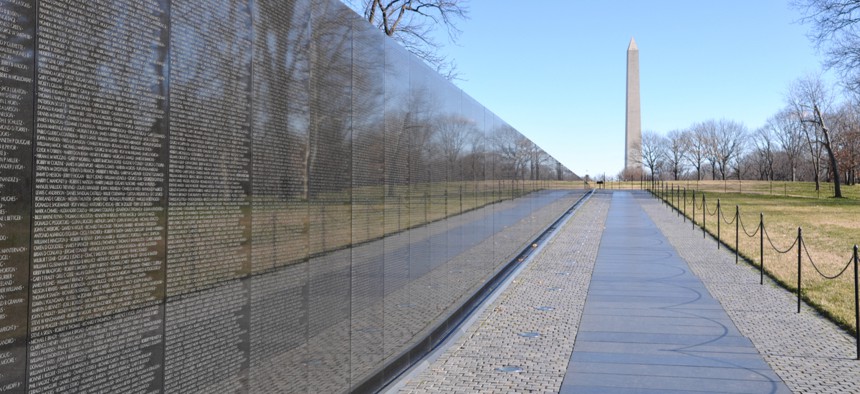VA, NARA Complete Digitization Effort to Help Speed Up Disability Claims for Some Veterans

Brandon Bourdages/Shutterstock.com
Records that fill 29,000 boxes will now be used to validate service-connected disability benefits claims for veterans exposed to toxins like Agent Orange in waters near Vietnam.
The Veterans Affairs Department and National Archives and Records Administration completed a massive digitization effort ultimately intended to quicken the time it takes for certain Vietnam veterans to receive help for enduring exposure to toxins like Agent Orange while they were at war.
In a robust, collective push, the agencies digitized heaps of NARA-held U.S. Navy and Coast Guard declassified deck logs, which may hold data used in the determination of VA-distributed disability claims. Also deemed ship or captain’s logs, the documents include chronological details of daily happenings on Navy ships and units.
The move to digitize these specific deck logs followed the passage of the Blue Water Navy Vietnam Veterans Act of 2019 and the information contained in them can be tapped to validate service-connected disability claims particularly for Blue Water Navy, or BWN Veterans. During the Vietnam War, these Navy members served in the waters around the country—but after the conflict, they experienced more administrative barriers to demonstrate they were exposed to toxic agents amid their deployments. Many found it difficult to prove their eligibility for relevant benefits, though they developed similar symptoms and illnesses as other service members whose boots were on the ground.
Following a long legislative journey, the relatively recently passed law extends presumptive status for disability benefits to veterans who faced herbicide exposure in the “blue water” near Vietnam.
“This significant digitization effort took close to 300 individuals from NARA and VA to successfully execute, as well as many more VA personnel to process the BWN claims once the law took into effect on January 1, 2020,” VA Press Secretary Christina Noel told Nextgov via email Tuesday.
To complete the Blue Water Navy digitization efforts, Noel said more than “29,000 boxes of deck logs had to be removed from high-capacity storage” within NARA, and then inventoried, boxed and prepped. From there, it was all shipped to VA where Noel said the records were “reconciled, carefully unpacked, prepped and delicately scanned.”
Once digitized, VA then extracted key data elements from deck logs for more than 1,800 vessels contained in the tens of thousands of boxes, Noel explained. They are what’s now used as supporting evidence for Blue Water Navy claims the agency receives.
“The deck log digitization resulted in approximately 29 million total images,” Noel said.
Following all the scanning and data extraction, the veterans-focused agency then returned the paper records back to NARA where they will be housed for long term preservation. Notably, VA also provided NARA with the digital images of all those logs that are being made available to the public for the first time in the National Archives Catalog, Noel confirmed.
Archivist of the United States David Ferriero noted in VA’s press release that the log of the hospital ship he served aboard during Vietnam was involved in the effort. “As a veteran from this era, I recognize the unprecedented value this provides to veterans making these logs easily accessible online,” Ferriero said.
While all available Navy deck logs for ships that served in Vietnam—and dated from between 1956 to 1978—were digitized in December, the Coast Guard logs from that time finished this month.
The two agencies previously worked together in 2014, when NARA helped advance the digitization of the Official Military Personnel Files, and that pre-existing relationship enabled the records agency to confidently release so many records to VA, Noel said.
“The team at NARA recognizes the importance of this effort making it easier for BWN Veterans to receive the benefits they’ve earned without burdening them with paperwork,” VA Secretary Robert Wilkie also noted in the agency’s release.
VA’s announcement further reveals that at the time of its publication, the agency has already collectively paid out $641 million to more than 22,524 Blue Water Navy veterans or survivors. There are an estimated 90,000 veterans who might potentially be eligible for such assistance.
Press secretary Noel said, going forward, “VA is continuing to identify additional opportunities to proactively digitize records taking into account upcoming legislation, veteran populations, and general trends which will alleviate the burden to the veteran or other third parties that may have paper records in their custody.”
Approved Veterans Service Organizations are available to assist those hoping to file BWN-related claims.






